There was big news out of the United States last week for those who follow the ongoing debate over the state of free speech. FIRE, the preeminent free speech organization for higher education, is expanding beyond campus. And the organization has been renamed the Foundation for Individual Rights and Expression.
My guest on the podcast today says its expanded mandate is a result of 2020, the worst year for free speech in his entire career. And he wants us all to think deeply about why free speech is worth defending.
Greg Lukianoff is a free speech lawyer and the president and CEO of FIRE. He’s also a documentary producer and a New York Times bestselling author. Most recently, he co-authored, with Jonathan Haidt, The Coddling of the American Mind: How Good Intentions and Bad Ideas Are Setting Up a Generation for Failure. Greg Lukianoff joins me for a wide-ranging conversation about free speech, viewpoint diversity, cancel culture — and how to survive the culture wars.
Below is an edited and condensed transcript. For the full interview, download the podcast.
TH: Greg, welcome to Lean Out.
GL: Thanks for having me.
TH: It’s great to have you on today. We’re going to talk about the expansion of FIRE beyond campus, and the state of free speech culture in America. But first, I want to start with your own story and how you became an advocate for free speech. You studied journalism and international relations in undergrad. What set you on the trajectory to running FIRE?
GL: Great question. My joke is that my second earliest memory after my first birthday was with my Russian father — with a very strong emphasis on brutal honesty, which is pretty Russian — and an ethnically Irish mom, who grew up in Britain and had that exaggerated sense of politeness. I got a present for my Auntie Rona that I didn’t like. It was the first present I remember ever getting that I didn’t honestly like. I looked back and forth to my mom and to my dad, to my mom, to my dad. Thinking, “I have to be polite. I have to be honest. I have to be polite. I have to be honest.” So of course I did what any good four-year-old would do — I broke out in tears. I remember my older sister Katie saying, “Oh, baby doesn’t like a gift, he just cries.” I always joke that I wish I had the vocabulary then to be like, “This is my first experience with a cultural paradox.” [Laughs]
That’s also a way of saying first-generation Americans, immigrants, a lot of times they get what’s different about America. And one of the things that is different about America than any other country in the world is free speech. Not to say that nowhere else has free speech, but our commitment to it is unusually strong. At least it has been historically. My father is Russian, but he grew up in Yugoslavia and we had to flee the Bolsheviks. And so, you also have that family history of knowing how bad totalitarianism can be, and what happens when you stop protecting freedom of speech.
So I was kind of born into it, but then I worked as a student journalist when I went to American University for undergrad. And nothing is going to radicalize you more than that. Because people will come into your office — I was an editor — every day practically with some new reason why you have to fire this reporter, or withdraw this column, or apologize for this article. Seeing that in motion, you’re like, “Wow, okay. So people know they are offended first. And then they come into the office and sometimes they are making up the rationale on the spot, but they are just looking for any rationale they can use.” Due to human nature, it makes a lot of sense that the First Amendment has to be very broad. Because any exception that you allow, someone is going to use it to try to censor speech they simply dislike. Oftentimes having convinced themselves that the thing they don’t link just happens to be something that isn’t protected …
So, I hyper-specialized in First Amendment law. I took every class that Stanford Law School offered on it. When I ran out of free speech classes, I did six credits on censorship during the Tudor dynasty — something I designed myself. I interned at the ACLU of Northern California. I was lucky to find a job, because there just weren’t that many First Amendment jobs. Harvey Silverglate, the co-founder of FIRE, came out and found me and brought me away from my happy, cool life in San Francisco to be the first legal director of a then-new organization, the Foundation for Individual Rights in Education.
TH: FIRE has now expanded beyond campus, which has quietly been the plan for some time. But the events of 2020 accelerated that timeline. Talk to me about what FIRE was seeing during that year.
GL: People had been approaching us with the idea that we should go beyond campus for almost as long as I’ve been around. But that really sped up since about 2014, 2015, with some of the illiberal trends that Jonathan Haidt and I saw that led to our original article in 2015 and eventually the book, The Coddling of the American Mind.
We were already concerned that something had changed in people’s attitude about freedom of speech, but I liked FIRE being narrow but deep. I didn’t want to even consider expanding beyond campus until I felt like we had sufficient coverage there. One of the milestones that we passed that got me thinking maybe we’re there, is that if there was a major free speech on campus case, it might take us a couple of days, or even a couple weeks in some cases, to really investigate it — but we could generally answer almost anything that popped up … We got there about 2019, or at least we knew where we were going to get there. So, we started talking internally about it. People have been approaching us to do this forever, including Ira Glasser, former executive director of the ACLU, and Ron Collins, who’s a First Amendment scholar and historian.
We were thinking maybe 2024, when we turned 25 — maybe we announce that we’re expanding then. But 2020 was just the worst year I have seen for free speech, in the U.S. at least, probably in my lifetime. We thought it was going to be a quiet year because most campuses were shut. In a busy year, we get a thousand case submissions. 2020, with 80 to 85 percent of campuses shut, we got 1500. And they were much worse. They were much more ideological. People kind of gloss over this. Twitter is a place where you constantly feel gaslit around these issues.
But it was pretty remarkable that you had 150 left-leaning people sign a Harper’s letter saying that our Overton windows is too small and people are getting cancelled — even though it didn’t use the word cancelled — and that got dismissed. And then within the course of like eight weeks, people like Bari Weiss, James Bennet, Matt Yglesias, Andrew Sullivan, Glenn Greenwald, they all stepped down, citing intolerance at their institutions. Those who could speak about it; James Bennet couldn’t. In the case of Matt Yglesias and Glenn Greenwald, it was institutions they helped found. So, it really was a year where we seemed to be kind of losing our minds. And at the same time, on the Twitters, everyone was like, “Oh, this isn’t really happening.” Really?
I’m working on a book called the Cancelling of the American Mind, because I’m stuck with “of the American Mind.” I’m co-authoring it with 21-year-old wunderkind Rikki Schlott, who writes for the Post and Reason. She’s an incredible writer. We’re really just trying to put in one place: Not only was cancel culture real, it was historic. When you look at the other moments in censorship history in the United States — even the Red Scare, there were a lot of professors who were fired during that period, sometimes it could be hard to figure out what for. But in that case, at least, a lot of schools actually stood by their Marxist professors and said we’re willing to fight this.
At this point, I think our Scholars Under Fire database — we’re just about to update it … there’s probably going to be about 700 examples of trying to get professors fired since 2015. Most of those are just since 2020. Hundreds of them were actually fired. Hundreds more were punished in some way. And about three dozen examples of tenured professors getting fired for what they said, wrote, or taught. Yes, tenured professors get fired, but usually for like breaking the law, not showing up for school anymore, sexual harassment — serious stuff. What was going on here? All tenure was designed to protect, really, was research, pedagogy, speech. And when you have three dozen professors being fired for this since 2015, it’s been such a strange time. I originally wanted to call the book, The Gaslighting of the American Mind, but apparently someone is writing a book with a very similar title at the moment. [Laughs]
TH: I’ll be interested to read that book. I have been writing about cancel culture, and the pushback I get is the same arguments over and over. So I’m going to put those to you, and ask you to respond. Number one: Cancel culture is not real; give me one example of someone actually losing their livelihood. Number two: Cancel culture is just consequences of bad speech; if you don’t want to be cancelled, don’t say bad things. Number three: I personally have never felt any danger expressing my own opinion. And number four: Cancel culture is a right-wing talking point and we should not give that side any oxygen.
GL: Oy. I don’t even know where to begin. I could spend a whole hour talking about each one of them. Watching everybody on Twitter freak out when The New York Times just reported what comes out in every poll — that Americans are afraid of getting cancelled. And that’s white, Black, liberal, conservative. They are afraid of losing their jobs for stating their honest opinions, or cracking an untoward joke, or even one that they thought was P.C. So it shows up everywhere, but then people dismiss it, saying like, “Oh no, they’re just talking about self-censoring in the good way.” It’s like, “Okay, you are noticing that every way we have to measure this that can be done by human beings is saying that this is a real problem?”
Now the right-wing talking point, I think, at least is somewhat intellectually honest. I’m politically left-of-centre. Most of the FIRE staff is politically left-of-centre. I kind of hate having to say that, because there’s something very primitive to the way elites in the U.S. talk about this. Which is this presumption that if you can point out that something is conservative, you don’t have to take it seriously anymore.
Right before The New York Times article, where everybody lost their minds, we have an intern Emma Camp, she wrote an article making a point that should have been uncontroversial, that it’s hard to have difficult conversations in class or on campus these days. Again, this comes out in all the polling. The amazing thing was watching how much of the debate on Twitter was so focused on whether or not she was conservative. She’s not, by the way … But also: What is wrong with us? Basically you’re saying that if you can figure out that Emma is conservative, you don’t have to listen to her anymore for saying something that basically most of us could say is true. And what were the other ones?
TH: That cancel culture is not real, but we’ve discussed the ample evidence that it is. And then that there are a group of people who don’t ever feel like they’re in danger for expressing their opinion. My experience of those people is that they happen to agree with the dominant narratives point by point.
GL: The most doctrinaire people, yeah.
TH: And lastly, that cancel culture is just the consequences of bad speech. That if you’re going to say bad things, you should expect really vigorous pushback.
GL: Yeah, that’s the whole “accountability culture” argument. Which drives me nuts. Essentially you’re assuming the truth of your statement by making it. You’re assuming there’s something they need to be held accountable for … People will always bring up hate speech if they’re inclined to be critical of free speech. Hate speech comes up immediately … I wrote a book, Unlearning Liberty. Show me the examples in there that actually look like hate speech. You can find arguably some, but what people are actually getting fired for — what people are actually getting punished for, in a lot of cases, is speech that most Americans would think of as really quite tame.
TH: I want to talk a little bit about the state of free speech culture. In Canada right now, we’re seeing a decline. How would you characterize the state of free speech culture in the U.S.?
GL: I am somewhat hopeful that it’s starting to rebound. The ideological madness that you saw in 2020 and 2021, I feel like the fever might be breaking a little bit. That being said, there’s still a long way to go …
When I try to explain what free speech culture is, I usually go to idioms that we don’t use anymore in the U.S. Sticks and stones is probably the saying that’s gone out of fashion the most, in a very weird way. People will actually say things like, “Well, we used to say sticks and stones will break my bones but names can never harm me — but now we know that’s not true.” It’s kind of like, “Okay, so you honestly think John Stuart Mill, or John Milton, for that matter, or Karl Popper, weren’t aware that words can sometimes hurt your feelings? Badly?” Of course everyone knew that. The saying is trying to teach kids to put being insulted in perspective, which is a great habit to learn if you’re in a democratic culture of dignity, as it’s called. That essentially you should learn habits that let you experience interactions less painfully. And accept the fact that there are going to be people out there who hate your guts, or are just mean some days.
I actually went to a saying, instead of an idiom. The idioms are “it’s a free country.” “To each their own” was something that people said a lot when we were younger. “Everyone is entitled to their own opinion,” “walk a mile in man’s shoes.” These are all good, small-D democratic values represented in those little idioms. And those have largely fallen out, at least in elite circles. Replaced with an immediate association of free speech with what I call the three Bs: The bully, the bigot, and the robber baron.
Now, where do I think this comes from? I think it comes from the fact that campuses, and K through 12, can’t admit that they’re politically homogenous and very influential. It makes sense that when you’re in an underdog position, you argue free speech — because everything else is protected either by the vote, or by wealth and power. It’s only unpopular views that need free speech. Or unpopular people, for that matter.
The political valence of higher education has gone from being, say, two-to-one liberal to conservative in the 60s, to literally some departments having no conservatives whatsoever. And I think six-to-one on average at this point. And administrators are far worse.
They can’t admit they are no longer the underdog. They can’t admit that they are very wealthy and powerful. And they don’t bother to explain that part when they suddenly have discovered that free speech is actually more problematic than we thought. It’s like, “No, that’s normal. That’s what happens when people go from being out of power to in power. That’s a temptation.” And it was largely resisted, by the way, by older liberal professors and administrators who still considered free speech central to their identity. Unfortunately, a lot of those professors have retired, died, been cancelled, or just simply been outnumbered and shut up. So I think that it’s really interesting that a lot of the argument against free speech is couched in terms of power by institutions like higher ed that can’t admit that they’re extremely powerful.
TH: That’s so interesting. I just have two last quick questions for you. You write for Persuasion on Substack. A recent piece you co-authored with Jonathan Haidt gave some advice about how to keep one’s company out of the culture war. It offered eight steps for business leaders. When you think about that piece for the moment we’re in right now, what step do you think is most relevant?
GL: I’d actually have to pick two. One is: It’s okay to say that your widget factory is politically neutral. That it doesn’t take positions and wants to serve all Americans. That’s what Brian Armstrong did at Coinbase, and he had to be willing to let 60 employees go and give them severance packages. But I think that overall, that was the right call.
The other one is if a social media mob is coming after one of your employees, slow it down. Slow the process down. Because these social media mobs can make you feel like the world is ending and you have to do something right now, and you have to get rid of this person … If you have a process in place, basically saying we’re willing to look into it if that’s even warranted, but we’re not making any move for weeks — the reason why that’s so important is the social media mobs rely on this very immediate sense. They tend to just find a new target if you run down the clock a little bit. So I do think that better procedural safeguards can make a huge difference in whether or not you have to sacrifice a great employee to an angry mob.
TH: Lastly, I’m wondering about hope. I know that you are in the trenches of the culture war. This is a very depressing time in many ways, for many people. We’ve just come out of this really isolating, horrible pandemic — or, on our way out. Where do you draw your hope from to keep doing this work?
GL: Two places. One is that our polling shows that Black, white, liberal, or conservative — Americans still value freedom of speech. Still love it. There’s difference in what they think free speech is, depending on where they are on the political spectrum. But overall, the support for free speech is very strong.
Our expansion is a 75 million-dollar expansion … [including funds] for a free speech, public service announcement program, where we’re doing ads all over the place, giving inspiring stories about freedom of speech. Something that, if you’re trying to change the culture from one that never believed in free speech in the first place, could be a real uphill battle. But when you realize that, in a lot of cases, what you’re seeing is pluralistic ignorance, or collective illusion, as Todd Rose puts it, or an emperor’s new clothes situation — where essentially people really just want permission to say that what they believed seven years ago is still a moral good.
That doesn’t mean, however, that I think the next several years are going to be swell. Politically, the situation in the U.S. — I feel like the left and the right are not exactly in great places at the moment. And I’m pretty scared of what the next five years or so will hold. But I’m optimistic for the long term success of freedom of speech for this reason: Free speech works really well. It lets you know where the problems are in your society. It lets you be an authentic person, to actually live your truth. It’s great for artistic innovation. It’s great for comedy. It’s great for science. So, I think that the advantages of freedom of speech are sufficiently great that the countries that decide they don’t want it anymore are going to find that they’re creating far more problems than they’re solving.
This is an edited and condensed transcript. For the full interview, download the podcast.

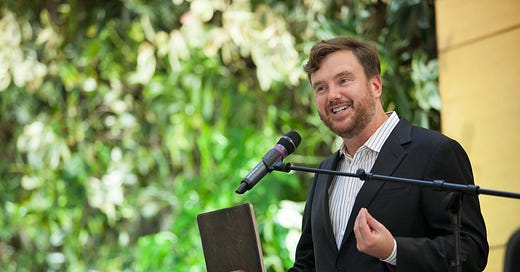

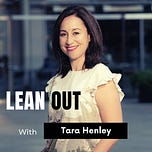




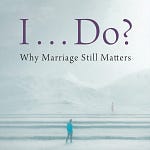

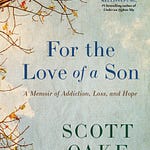
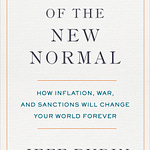



Share this post